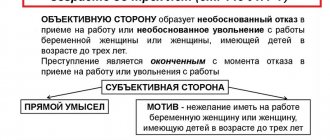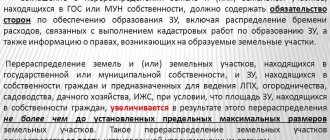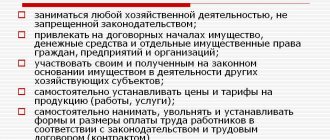In a work environment, duties and responsibilities are constantly shared. Requirements for the work of secretaries in general have been formed for a long time, but they have their own characteristics, which are associated with close interaction with departments. Performers write letters, carry out assignments and ensure ongoing storage of documents. And who is to blame if the letter is poorly written, the order is overdue, and the original document is lost? We will tell you which of these questions are answered in the current regulatory and methodological documents on office management, and which aspects you will have to think about on your own.
Concept of an official
A Russian citizen performing the functions of a government representative is called an official. Moreover, power does not necessarily have to be state power. A person can acquire the status in question by occupying a senior position in a public institution, party, enterprise or even in a production organization. In most cases, the functions that an official performs are closely related to administrative, economic and organizational activities.
There are several definitions of the concept “official”. The Code of Administrative Offenses of the Russian Federation states that an individual has committed an administrative offense. The Criminal Code of the Russian Federation refers to a criminal offense, and the Civil Code of the Russian Federation refers to civil legal relations. If we look at the concept through the prism of the Russian elite, then we are talking about a representative of a government body of the Russian Federation. Next we should consider the definition provided by the Russian Administrative Code.
Abuse of power
The generic object of abuse of official powers, as well as other crimes provided for in Chapter. 30 of the Criminal Code - social relations, the content of which consists of the activities of public authorities, the interests of public service and service in local governments, protected by criminal law, aimed at protecting the individual, society and the state.
The direct object of abuse of official powers and all other provisions provided for in Chapter. 30 of the Criminal Code of Crimes are social relations, the content of which is the activity of a specific public authority, protected by criminal law, aimed at protecting the individual, society and the state, the specific interests of public service and service in specific local government bodies. In the crime under consideration, in addition to the main one, there may be an additional direct object - health, property, etc.
From the objective side, abuse of official powers consists of the use of official powers, which means the commission of actions arising from the official powers of the subject. A person must act within the limits of his powers, which are established in the relevant regulations. When a person abuses official powers, he uses them contrary to the interests of the service, i.e. his act violates the proper functioning of authorities and management of state or municipal institutions, local government bodies, as well as their individual links.
The use of official powers is usually active actions, and they manifest themselves in a very diverse manner (violations of staffing and financial discipline, the established procedure for considering complaints and applications from citizens, so-called temporary borrowing, etc.).
A mandatory feature of the objective side of a crime is the consequences in the form of a significant violation of the rights and legitimate interests of citizens and organizations or legally protected interests of society or the state. Harm can be material (property damage, harm to health) and intangible (undermining the authority of government and administrative bodies, violation of the constitutional rights of citizens). The concept of the significance of harm is evaluative. The degree of significance of the harm depends on the impact of the unlawful act on the normal operation of the organization, enterprise, institution, the amount of material damage, the significance of lost profits, the number of victims, the severity of moral harm, etc.
To qualify an official abuse that has a material nature, it is necessary to establish a causal relationship between the consequences and the action (inaction).
The crime is considered completed from the moment at least one of the consequences specified in the law occurs.
The subjective side of the crime is characterized by an intentional form of guilt. A person acts with direct or indirect intent.
The presence of selfish interest is mandatory when a person seeks to obtain a property benefit without illegal gratuitous withdrawal and circulation of other people's funds for his own benefit or the benefit of others, or other personal interest, i.e. the desire to extract benefits of a non-property nature, due to such motives as careerism, protectionism, nepotism.
The subject of the crime is a special one - an official. A qualified crime (Part 2) is formed by acts if they are committed: a) by a person holding a public office in the Russian Federation; b) a person holding a public position in a constituent entity of the Russian Federation, or c) the head of a local government body (see notes 2 and 3 to Article 285).
Particularly qualified personnel (Part 3) are formed by the acts mentioned in Parts 1 or 2 of the article, if they entailed grave consequences. They can be tangible or intangible. These include, for example, a major accident, a long stoppage of the production process or transport, failure to complete a task, particularly large material damage, bodily injuries provided for in Parts 1 and 2 of Art. 111 and part 2 of Art. 112 of the Criminal Code.
Article 285 is a general rule in relation to special rules containing signs of other official crimes (for example, Art. 216. 299. 30.1 of the Criminal Code). According to the qualification rules for competition of norms, in such situations a special norm is applied. However, if there is a real set of crimes in the crime, it is possible to simultaneously apply general and special norms.
Official: Art. 2.4 Code of Administrative Offenses of the Russian Federation
The Administrative Code of Russia provides a comprehensive definition of the presented concept. According to the law, an official is a citizen who is vested with certain powers in the manner prescribed by law. A person extends his functions to citizens who are not officially dependent on him.
Officials, as defined by the Code of Administrative Offenses, perform functions of an administrative, economic and administrative-organizational nature. Such persons may exercise their powers in the following public spheres:
- Russian Armed Forces;
- local government authorities;
- state and municipal organizations.
Persons who violated the duties and powers assigned to them will be punished in accordance with the articles of the Code of Administrative Offenses “On Officials”. Some such articles will be discussed in detail below.
Contents of public duties
The division of functions between government entities is carried out according to several criteria. One of the criteria is the content of duties of a public nature. Entities vested with administrative, economic or organizational and administrative powers on the basis of direct instructions implement them within the limits established by regulations, orders or instructions of management.
These actions are carried out by government entities only during the performance of public official duties, or until the end of the period specified in the normative act or order.
Administrative public duties are performed by municipal and state employees. His powers extend to other employees subordinate to this entity and persons who do not have official dependence on the official.
These citizens make decisions that are binding on organizations and citizens of any form of ownership and departmental subordination. At the local level, these powers are exercised only within the executive and administrative non-state municipal bodies.
About the status of an official
Who is an official under the Code of Administrative Offenses of the Russian Federation? This question can be answered, but only by first determining the status of the person. To do this, it is necessary to pay attention to the legal regulation of assigned powers. Moreover, the status does not depend on the objective implementation of the functions performed.
An official has the right to exercise the rights entrusted to him or to refrain from them. However, a citizen cannot refuse his duties. Thus, in this area an equal ratio of imperative and dispositive principles prevails. In administrative law, it is possible to identify private and public activities that fall under the jurisdiction of an official. It should be noted that such identification is possible only in the field of administrative law. Thus, in the criminal sphere, a person has the opportunity to exercise only public powers.
Features of an official in administrative law
The Code of Administrative Offenses establishes types of liability for both legal entities and officials. In most cases, sanctions are imposed on a citizen for improper performance of duties, or for complete failure to perform them.
Officials may bear responsibility both in the administrative sphere and in any other field. In particular, it is not uncommon for a citizen to be sentenced under criminal law. In criminal legislation, officials are understood as citizens who temporarily or permanently exercise the functions of a government representative. Chapter 30 of the Criminal Code of the Russian Federation is entirely devoted to officials.
The Code of Administrative Offenses of the Russian Federation provides a much broader and more voluminous definition. In administrative law, the subject of liability is the person who committed an offense within the scope of his powers. These are not only managers and representatives of the commanding staff, but also ordinary government employees performing administrative, economic and managerial functions.
Types of duty periods
In the field of work of legal entities, the current legal norms establish three types of periods for the performance of official duties in commercial or non-profit organizations by authorized persons:
- Constant.
- Temporary.
- The period of performance of duties by special order.
The content of the management functions of these persons coincides with the scope of powers established for employees of municipal and state bodies.
Officials and ordinary citizens
In the administrative and legal sphere, officials are considered to be both representatives of government authorities and some ordinary employees. So what is the difference between ordinary people and officials? According to the Code of Administrative Offenses of the Russian Federation, the category of officials includes citizens working in government bodies and performing a number of administrative and economic functions there. This should also include individuals engaged in entrepreneurial activities - the so-called individual entrepreneurs. This is where many complaints and disputes arise.
One might think that individual entrepreneurs are far from the Code of Administrative Offenses definition of “official”. If we take the activities of individual entrepreneurs, as well as violations in the sphere of exercising powers, then the legal nature will resemble the activities of ordinary legal entities. persons The motives, the nature of the acts, the composition of the violations - all this indicates the distance between the individual entrepreneur and the officials. And this is no coincidence. Recently, the legislator has really begun to move away from the identification of individual entrepreneurs and official citizens. A number of individual cases have shown that the liability of entrepreneurs has increasingly begun to be formed based on the affairs of legal entities. A simple example is a recent note to Article 16.1 of the Code of Administrative Offenses of the Russian Federation. The liability of an individual entrepreneur now falls into the legal category. persons, but not in all cases. So far, a similar rule applies to Article 7.34 of the Code of Administrative Offenses on violation of the use of land plots.
Offenses by officials
The “special part” of the Russian Administrative Code contains 442 articles. Of these, 330 are devoted to the responsibility of officials—that’s almost three quarters. Most of the articles are devoted to the entrepreneurial and organizational and economic activities of citizens. It is worth highlighting offenses in the following areas:
- encroachment on civil rights (50 articles from Chapter 5 of the Code of Administrative Offenses of the Russian Federation);
- protection of property (29 articles from Chapter 7 of the Code of Administrative Offenses of the Russian Federation);
- ecology, environmental management and environmental protection (38 articles from Chapter 8 of the Code of Administrative Offenses of the Russian Federation);
- agriculture, land reclamation and veterinary medicine (14 articles from Chapter 10);
- communication and information (23 articles from Chapter 13 of the Code of Administrative Offenses of the Russian Federation);
- industry, energy and construction (14 articles from Chapter 9);
- finance and taxes, as well as business activities (59 articles from chapters 14 and 15);
- customs sphere (21 articles from Chapter 16);
- encroachment on government bodies of the Russian Federation (10 articles from Chapter 17);
- military registration (4 articles from Chapter 21);
- management order (19 articles from Chapter 19).
Thus, the responsibility of officials in the Code of Administrative Offenses is provided for almost everywhere.
Sanctions for offenses
Are there any special types of sanctions for officials? The Russian Administrative Code states that imposing punishment on an organization does not exempt officials from liability. The most common type of punishment for such citizens is an administrative fine and disqualification.
In the latter case, we are talking about deprivation of the opportunity to hold a professional position for a period determined by the court. A simple example is the highest official of a constituent entity of the Russian Federation. The governor, head of the republic, district or any other region may be dismissed for any offense. Sometimes disqualification may coincide with lustration - but only in cases of change of power throughout the country.
WHY IS IT IMPORTANT TO DISTRIBUTE RESPONSIBILITY?
When does it come to responsibility in the office? As a rule, when something goes wrong, the culprits need to be found. There is a widespread opinion that there is no responsibility as such in office work, because serious tasks are related to the implementation of production plans, labor protection and money, and “shifting” papers into this row is difficult to place. We will not prove the opposite, because our audience - secretaries and clerks - know the price of a mistake. Many secretaries wonder about the division of responsibilities in the following situations:
1. A “local” problem has occurred: the manager becomes dissatisfied with various aspects of working with documents, which is limited to internal proceedings.
2. A “global” problem has occurred: an error when working with documents entails undesirable consequences for the organization and its top person (reputational, financial, and so on).
It is better to think about liability not after violations, but “for the future” - that is, in order to avoid these violations. To do this, it is necessary to carefully study the regulatory framework and work out local regulations (hereinafter referred to as LNA), because when it is necessary to sort out an incident, these documents are first of all turned to.
Often department employees try to justify their own shortcomings and shift responsibility for certain violations onto the shoulders of the secretary (Diagram 1).
It is interesting that often the result of such “fights” depends on the perseverance and personal views of its participants. So, in some organizations, a lot of responsibility is placed on the performers, but in others, on the contrary, the secretary is found guilty of everything. Taking all the blame personally most often occurs due to the fact that the secretary:
- does not know how this or that process should be organized and what he should be responsible for;
- performs too many responsibilities to add value.
For his own safety and peace of mind, it is important for the secretary to “spread straws” - to identify and regulate the most problematic areas of work. There is also a larger aspect to this issue: the distribution of responsibility is important not only for quiet work, when each employee understands his tasks, but also for organizing effective document flow.
Examples of officials
It is not so easy to determine an official by legal status alone. The Code of Administrative Offenses, unfortunately, does not provide detailed information about individual types of professions. That is why it is worth considering examples from practice.
Often citizens get a job, after which they cannot understand whether they are officials. Rights and responsibilities in this case are the best way to determine status. For example, you can take a storekeeper. It would seem that such an employee can acquire the status in question? In fact, he can if he signs a document on financial responsibility. In this case, he will have administrative powers and will have the right to accept or issue goods at his own discretion. This happens, but not often: sometimes employers decide to entrust their subordinates with some of their own functions. Whether this is good or not is a moot point. Ordinary workers, having received the status of an official, acquire a special type of responsibility. Therefore, they may be subject to sanctions if the entire organization commits violations.
Exceeding official authority
The objective side of abuse of power is the commission of socially dangerous actions that clearly go beyond the authority of the official. Exceeding official powers is characterized by the commission of actions: a) within the competence of an official of a given department; b) falling within the competence of an official of another department; c) which could only be committed collectively; d) although within its competence, but which it could have committed in the presence of the conditions specified in the law or other regulatory act.
All of these forms of excess must clearly (obviously) go beyond the powers granted to the official. Understanding the obvious nature of abuse of power is mandatory for the subject of the crime. Therefore, in order to establish in each specific case of excess a clear violation of the limits of authority, it is necessary to clarify the content of the official’s authority.
A mandatory feature of the objective side is criminal consequences. This is a significant violation of the rights and legitimate interests of citizens or organizations or legally protected interests of society or the state. Their content is similar to the content of the consequences in Art. 285. Excess is characterized by causing harm to the person or the health of citizens, which is considered a particularly serious form of violation of the interests of citizens. The public danger of harm to the rights and interests of citizens increases due to the fact that personal harm by its nature is irreparable, and that it is caused by officials, whose primary duty is to protect the rights and legitimate interests of citizens.
When determining the significance of harm, one should proceed not only from the amount of property damage, but also take into account the moral harm caused to the individual. Excess often occurs in the form of a continuing crime. In this case, the harm consists of a number of consequences, which together determine its significance.
Causality is a mandatory objective sign of abuse of power. In this composition, the causal relationship is characterized by the absence of extension in time.
From the subjective side, abuse of power is an intentional crime. A person acts with direct or indirect intent.
The subject of the crime is a special one - an official.
Qualified excess (Part 2) can only be imputed to: a) a person holding a government position in the Russian Federation; b) a person holding a government position in a constituent entity of the Russian Federation, or c) the head of a local government body.
A particularly qualified crime (Part 3) is formed by the acts provided for in Part 1 or 2 of the article, if they are committed:
a) with the use of violence or the threat of its use. Physical violence may be accompanied by blows, beatings (Article 116 of the Criminal Code), and torture (Article 117 of the Criminal Code). Part 3 of the article covers cases of causing minor, moderate harm to health, as well as serious harm to health, provided for in Part 1 of Art. 111 of the Criminal Code. Intentional infliction in excess of death, grievous bodily harm, provided for in Parts 2, 3,4, Art. 111 of the Criminal Code, forms a set of crimes. Mental violence in the form of a threat of violence must be real and obvious to the victim;
b) using weapons or special means. The use of a weapon means the actual use of it to hit a living target, as well as as a means of physical violence to inflict blows, beatings, bodily harm or mental influence on the victim. Part 3 of the article refers to weapons as such, i.e. devices and objects that are structurally designed to hit a living target. This can be a firearm, bladed weapon, throwing weapon, pneumatic weapon, or gas weapon. According to their purpose, weapons can be civilian, service, combat, hand-held, small arms and bladed weapons. Special means include rubber truncheons, tear gas, handcuffs, means of destroying barriers and forcibly stopping transport, water cannons, armored vehicles, and service dogs. To qualify under Part 3 of the article, it is required that a weapon or special device be used in violation of the established rules;
c) causing grave consequences. In each specific case, the decision to cause serious consequences is a question of fact and is subject to careful evaluation. The concept of this feature is close to the concept of a similar feature in Part 3 of Art. 285.
Rights and obligations of officials
From the problem of assigning responsibility to officials, it is worth moving on to the problem of assigning responsibility on behalf of such citizens. Officials from the system of government bodies have the duty of protecting the state system and combating lawlessness. Their main task is to ensure expedient, conscientious, fair and legal bringing of order violators to administrative responsibility. To do this, a circle of government officials is determined, who are officials, after which they are vested with powers.
More than sixty supervisory authorities consider administrative cases, of which there are about four hundred in the Administrative Code. For example, police departments deal with 50 types of violations, among which are the areas of traffic, law enforcement, etc. In police departments, officials are managers and their deputies. These are the people who consider cases of violation of the law.
DISTRIBUTION OF RESPONSIBILITY FOR WORK AT DIFFERENT STAGES OF THE DOCUMENT LIFE CYCLE
In an organization that has implemented a global distribution of responsibilities, the records management service (or secretary) provides methodological guidance and control over compliance with the procedure for working with documents. And the executors - employees of structural divisions - write letters and carry out orders. And who is to blame if the document contains errors and the order is not executed on time?
In practice, the issue of delineating duties and responsibilities becomes particularly acute precisely when it comes to the specific actions of certain employees at different stages of working with documents. Let us examine two areas of work in which disputes most often arise between the secretary and executors: the creation of documents (documentation) and the execution of documents (instructions).
Creation of documents (documentation)
The criteria for assessing the effectiveness of the process of working on a draft document (documentation) can be considered:
- quality of the document – the document has been assessed (approved) by all interested parties; the text and composition comply with the norms of official business style and the requirements for a specific type of document;
- timeliness of operations - the deadlines established for each stage of work are met: creation, approval, signing, registration, distribution of the document.
Various omissions while working on a draft document can lead to trouble. For example:
- the document was drawn up with violations and was not accepted for registration by the recipient organization, as a result of which the manager will have to sign it again;
- errors were found in the document (from grammatical to factual), which damaged the reputation of the company and its first person;
- a long time passed between the signing of the document and its registration or sending (the manager thought that the letter had been sent, but it turned out that it had not, and an internal investigation began), etc.
Current regulations on office work place maximum responsibility for the quality of the document on the executor (Table 3).
Depending on the specifics of the organization, the features and form of organization of office work, the local instructions for office work provide additional provisions for the delimitation of duties and responsibilities. Thus, a document may contain requirements related to the peculiarities of interaction between the secretary and executors at the stages of document registration and preparation for sending (for example, the requirement to fill out the fields of the document registration card in the electronic document management system at different stages of work). Consider the following tips:
1. Clause 4.4 of the Sample Instructions for Office Work defines a list of departments and persons with whom it is necessary to coordinate draft documents. Among them is the office management service. And if, for example, the range of documents under consideration is outlined for the legal service (draft LNA, draft orders), then according to this regulatory document, the office management service must coordinate all the documents of the organization. At least those whose requirements are regulated in the third section of the Sample Instructions for Office Work. At the same time, only for one group of documents (namely administrative documents) mandatory control over the correctness of execution by the office management service is stipulated (see clause 3.17 of the Model Instructions for Office Management). We recommend that the local records management instructions clearly define what types of documents are approved by the records management service (secretary) and what is the subject of approval.
2. Current regulations on office work contain requirements for the timing of completion of certain procedures. So, for example, according to clause 5.36 of the Model Instructions for Office Work, registration of outgoing documents is carried out on the day of their signing or, in some cases, on the next business day. As you know, the records management service or secretary is responsible for registering documents. At the same time, clause 7.11 of the Sample Instructions for Office Work states that after signing the document, the executor submits it for registration in the manner established in the local instructions for office work. Who will be to blame for missing deadlines and how to justify this if the executor forgets about the signed document for several days? We recommend that you pay special attention to the nuances when developing local instructions for office work , think over and describe a unified procedure for work at those stages that are not covered in the Sample instructions for office work and depend on the specifics of the organization. How is the process of submitting documents for signature to the manager organized? What happens to the documents after signing? How is the interaction between the contractor and the office management service (secretary) organized at this stage? It is advisable to document the answers to these questions.
3. In accordance with his job duties, the manager’s secretary ensures the organization of work with documents in the manager’s reception area. This is usually stated in his job description. But the current regulations that establish requirements for instructions on office work do not say anything about the work of the reception desk as such. We recommend that you think about regulating the work of the reception area when regulating the office work of your organization.
Execution of documents (orders)
As part of the organization of the execution of documents, regulatory acts on office work, duties and responsibilities are distributed between different categories of officials (Table 4). Generally speaking, the main task of departments is to execute documents on time or promptly notify the manager of the need to adjust these deadlines. A fairly large volume of tasks, united by the concept of “controlling deadlines,” is delegated to the office management service. The manager also “got it” - it is quite logical that he is the one who exercises control “in essence”.
We recommend that in the local instructions for office work in the section devoted to the organization of execution control, the following nuances should be provided:
1. In accordance with clause 6.8 of the Sample Instructions for Office Work, the office work service checks the timeliness of delivery of documents to be executed to employees. However, practice shows that it is wrong to concentrate all responsibility in one place. In the LNA, it is advisable to establish the obligation of employees to regularly check new tasks in the EDMS, e-mail, and collect paper documents from the cells of structural divisions.
2. Taking into account the specifics of the company and its document flow (traditional or electronic), it is necessary to carefully describe the work of the office management service (or secretary) in preliminary checking and regulating the progress of execution of documents (instructions), so that all actors understand the permissible degree of interference of the controller, and responsibility for non-fulfillment was not placed on his shoulders due to the lack of specifics in internal regulations. This also applies to the interaction of the office management service (or secretary) with the manager: think about what information and in what time frame the manager needs to monitor the substance of the issues under consideration and timely intervention.
Tasks of officials
It is worth considering the work of officials in identifying offenses using the example of the Department of Internal Affairs. It is this authority that carries out most of the functions in the field of crime prevention and suppression. Cases of the following nature are being considered:
- violation of the rules of stay at the state border;
- appearing in public places while drunk;
- petty hooliganism;
- drinking alcohol in public places;
- violation of road safety rules, etc.
The power of the Department of Internal Affairs affects many spheres of public life, but it is not unlimited. It is also worth noting that actions and inactions of an official that do not comply with the law can be identified and condemned by another official.
Subjects' tasks
Government officials face many challenges. They are divided by bodies exercising certain powers, as well as by areas of activity. Most of the security functions in the field of suppression and prevention of crime are carried out by internal affairs bodies.
Department of Internal Affairs officers consider the following types of cases:
- violation of the order of stay in the state border area;
- petty hooliganism;
- drinking alcoholic beverages;
- appearing on public territory while intoxicated and drinking alcoholic beverages in unauthorized places;
- violation of road safety.
In addition to the tasks discussed above, government officials are faced with many others.
Authorized authorities
Which officials have the right to decide cases of administrative offenses? It all depends on the severity of the violation of the law. So, it is worth paying attention to the following authorities:
- customs and tax authorities, military registration and enlistment offices, border services;
- ATS;
- executive agencies;
- collegiate administrative commissions;
- commissions for minors;
- magistrates, as well as judges from district and regional courts.
Civil servants in Russia are divided into federal and regional. The Parliament, the Government and the President operate at the federal level. At the regional level - the highest official of the constituent entity of the Russian Federation, regional authorities and courts.
Types of administrative bodies
The list of powers of officials depends on the type of body they belong to. The division of subjects occurs not only according to the scope of offenses, but also according to their severity.
Organs are grouped as follows:
- Tax and customs authorities, border services, military registration and enlistment offices.
- Executive authorities.
- ATS.
- Commission on Affairs of Minors.
- Peace, district, regional judges.
The powers and responsibilities of these persons are clearly regulated by various acts. For any violations, these entities are responsible to the fullest extent.








